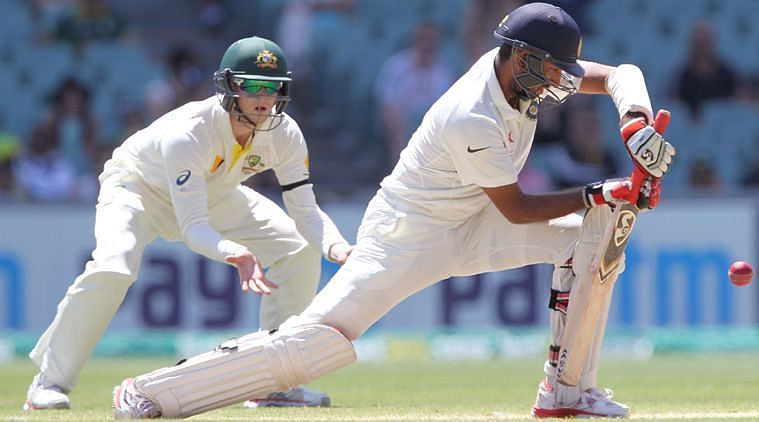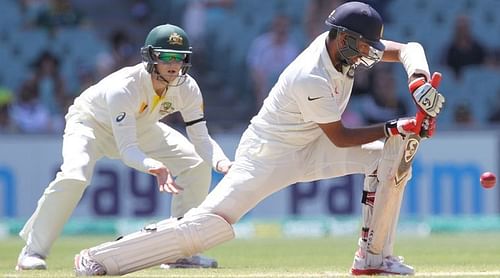
The art of not scoring runs: 5 instances when batsmen became unlikely 'stonewallers'

Stonewalling is not new in Test cricket. We do not have ball-by-ball data from the early days of Test cricket, but even then, such was the impact of batting of some of the players from that era, that they were termed as 'stonewallers'.
The likes of William Scotton, Bobby Abel, Dick Barlow and Alick Bannerman were renowned stonewallers in the 19th century.
Barlow once opened the batting, scoring only five runs in 87 four-ball overs as he ran out of partners, and the team folded for 69 all out in 87 overs, with the opener not out on 5!
Alec 'The Rat' Bannerman once scored 91 runs off 620 balls in a Test match. More than 90% of the balls he faced were dot balls!
Even in the 20th century, there were some notorious stonewallers. The Nawab of Pataudi Sr. once batted so slow in a Test match in Australia, that he invited plenty of sledging from the Australian crowd.
Post-war, Trevor 'Barnacle' Bailey carried the tradition well. He scored 68 off 427 balls in 458 minutes in the Brisbane Test during the 1958-59 Ashes. Pressmen kept themselves entertained by betting on how many balls he would take to score the next run.
Post-war Australian captain Lindsay Hassett took a long time batting in the 90s before scoring his maiden Test hundred. His brother was due to get married in the local church. He waited for 10 minutes with Hassett on 96 but then left for the marriage.
He came back to hear that Hassett was batting on 97. Hassett later used to joke that he got his hundred before they went for their honeymoon!
Then we had the Geoffrey Boycotts, the Mudassar Nazars, the Bill Lawrys and the Chris Tavares. The stonewallers sure bore a lot of people but do add a different dimension to the game.
A Cheteshwar Pujara or a Rahul Dravid can be expected to do that, but let's look at some famous incidents of stonewalling from players who are not really known for that.